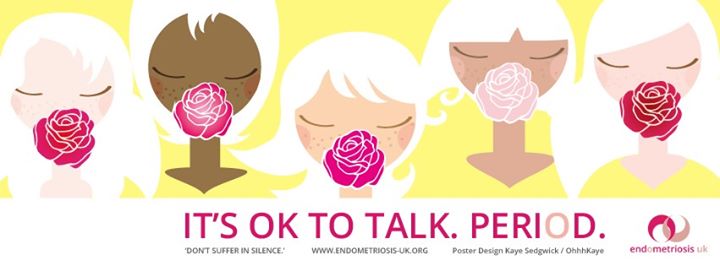
Endometriosis Awareness Week
Endometriosis and heavy periods
If you’re suffering from heavy periods, you are not alone. They affect more than 1 in 5 women and many don’t realise they are a treatable medical condition.[1] Heavy periods have many causes and only 50% of women are aware that endometriosis is one of them.[2]
This week (4th– 10 March) is Endometriosis Awareness Week – a week aimed at raising awareness about the condition and bringing light to the long diagnosis times (an unbelievable 7.5 years on average).[3]
So, what is endometriosis?
Endometriosis is a condition in which the tissue that lines the womb (endometrium) is found outside the womb, such as in the ovaries and fallopian tubes.[4] Each month the endometrial tissue reacts in the same way to those in the womb, building up and then breaking down and bleeding.[5] Unlike the cells in the womb that leave the body as a period, this blood has no way to escape. According to current statistics, endometriosis affects 1 in 10 UK women.[6] It is the second most common gynaecological condition in the UK and can affect any woman of reproductive age.[7]
What causes endometriosis?
The actual cause of endometriosis is unknown. There are several theories but none fully explain why endometriosis occurs.[8] It is possible that a combination of factors could be causing endometriosis to develop in some women.[8]
What are the symptoms of endometriosis?
Endometriosis symptoms vary between women but can include heavy periods with or without clots, period pain, irregular periods and prolonged bleeding.[9]
What should I do if I suspect I have endometriosis?
Think your heavy periods may be caused by endometriosis? Visit the Endometriosis UK website for support or advice. Most importantly, book an appointment to speak to your doctor about your heavy periods, possible causes and treatment options available.
References
[1]Royal College of Obstetricians and Gynaecologists. National Heavy Menstrual Bleeding Audit, 2011. Last accessed May 2022.
[2]Data on file: MISC-05658-GBR-EN Rev 001
[3]Awareness Days website. Last accessed December 2018
[4]NHS. Endometriosis. Last accessed January 2019.
[5]Endometriosis UK. Understanding Endometriosis. Last accessed December 2018
[6]Rogers PA, D’Hooghe TM, Fazleabas A, et al. (2009) Priorities for endometriosis research: recommendations from an international consensus workshop. Reprod Sci 16(4):335-46
[7]Endometriosis UK. Endometriosis Facts and Figures. Last accessed January 2019
[8]Endometriosis UK. Causes of Endometriosis. Last accessed January 2019
[9]Endometriosis UK. Endometriosis symptoms. Last accessed December 2018




